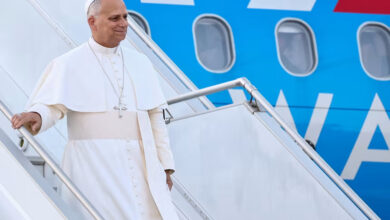Beirut–Two people, including a Hizbullah official, were killed in clashes between supporters of the Shiite Muslim movement and partisans of a small Sunni group in Beirut on Tuesday, an army spokesman said.
Police told AFP the fighters were using shoulder-launched rocket-propelled grenades and machine guns in the fighting, which continued for some four hours and in which another three people were wounded.
"A personal fight between a supporter of Hizbullah and another of al-Ahbash erupted just after 7:00 pm (1600 GMT) in Beirut's Burj Abi Haidar neighborhood and escalated into a firefight in which two men were killed, one of whom has been identified as a member of Hezbollah," the army spokesman said.
"The army has intervened and is trying to restore calm in the area," he said.
An AFP correspondent at the site of the clashes said eyewitnesses had identified the victim as Hizbullah official Mohammed Fawaz.
Witnesses said the clash began as an argument between Fawaz and supporters of the Sunni group over a parking space near a mosque frequented by al-Ahbash.
Gunfire and explosions could be heard as the fighting continued late into the evening in Burj Abi Haidar, an area in west Beirut considered a stronghold of parliamentary speaker Nabih Berri's Shiite Amal movement, which is allied with Hizbullah.
An Amal partisan told AFP that Amal members briefly joined the fight on Hizbullah's side, but the party later issued a statement denying that claim.
Troops cordoned off the area and were firing warning shots into the air as several Red Cross ambulances arrived at the site of the clashes, AFP's correspondent said.
All roads leading to the area had been cut off to traffic and pedestrians, security officials said.
Hizbullah, Lebanon's most powerful political and military force, is backed by Syria and Iran.
Al-Ahbash is also pro-Syrian and describes itself as a charitable organisation promoting Islamic culture.
The group landed a seat in parliament in 1992 amid a widespread boycott of elections. It lost the seat in 1996 but continued to exercise considerable influence over the country's politics.
Al-Ahbash first came to light in 1983 and gathered strength during the Syrian military presence in Lebanon, which ended under international pressure following the 2005 assassination of ex-premier Rafiq Hariri.
The movement has lost considerable weight since.
The fighting took place as Hizbullah chief Hassan Nasrallah addressed an all-women Ramadan iftar. Nasrallah made no mention of the incident.



